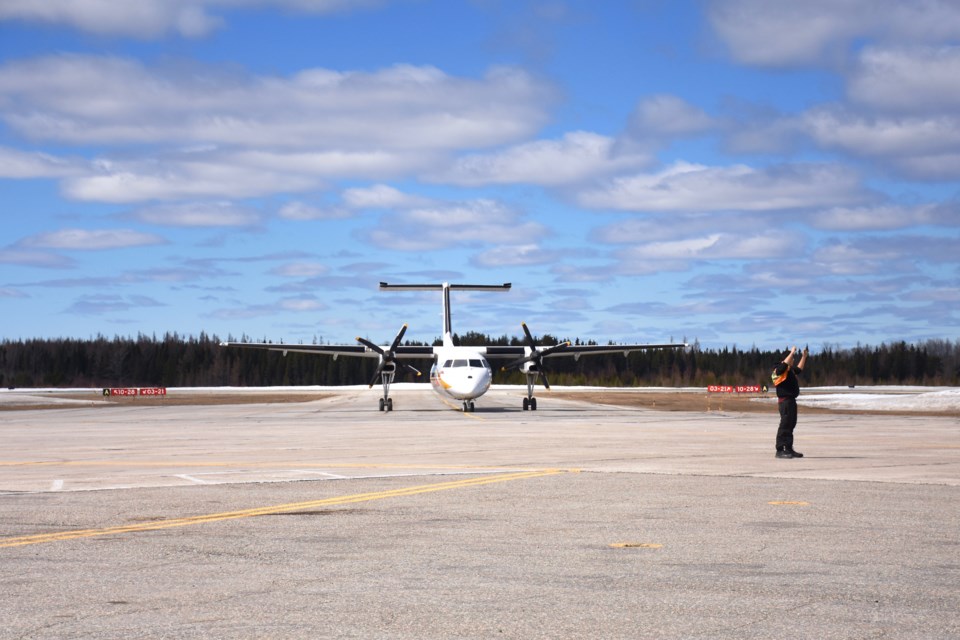Area politicians are concerned about the potential strain evacuations could have on emergency services.
Cochrane District Social Services Administration Board (CDSSAB) director of health Jean Carriere gave an update on First Nation evacuations at the April 18 meeting.
Some CDSSAB members expressed concerns about hosting First Nations evacuees and the strain it can have on services that are already stretched thin due to flooding in some areas and the recent Empire Complex fire.
While Carriere said the numbers are down from what the region normally hosts, as of Wednesday (April 17), there are 209 evacuees in Kapuskasing and another 86 in Timmins.
A total of 1,050 people are expected to be evacuated to northeastern Ontario municipalities, with 800 people expected in the Cochrane District. The host communities, according to the CDSSAB, are Timmins, Val Rita, Kapuskasing, Smooth Rock Falls and Kirkland Lake.
A group of evacuees from Kashechewan First Nation are also going to Barrie.
“We did have some serious concerns in regards to capacity and being able to provide services to everybody and the impact that that would have,” Carriere said. “The impact on the paramedic services from those calls, since they've been evacuated, is an average of two to four additional calls per day.”
During the spring when the ice breakup on rivers causes water to rise, remote First Nation communities on the James Bay coast are often evacuated.
In the past, communities would work with host municipalities, which would organize services for people to access while in town. This year, Kashechewan First Nation is working directly with ISN Maskwa under a new Indigenous-led model.
ISN Maskwa is owned and operated by Missanabie Cree First Nation. It provides emergency services, security and emergency preparedness training, other support services to Indigenous communities, and one-the-land accommodations for evacuees.
The group has informed the CDSSAB about its plans to host evacuees in the area.
In the past, when evacuees are in the region, the CDSSAB has seen a call volume increase of 10 to 30 per cent.
“Given the advisory from ISN Maskwa indicating no on-site health supports for the evacuees, the CDSSAB anticipates a 30 per cent surge in call volumes during the evacuation period. The surge is expected to strain the current service delivery systems, further impacting the board’s ability to respond promptly to calls for assistance,” Carriere wrote in his report.
On April 17, Carriere said there were three calls at a hotel where evacuees are staying.
“So it's just to demonstrate that there is absolutely an impact on our services and that’s just the paramedic services, it's not including all of the other services that's impacted,” he said.
Timmins Mayor Michelle Boileau, who is the CDSSAB chair, said evacuations should be looked at on a macro level. She explained that adding hundreds of people to multiple communities in the district adds up.
“That creates major pressures to that one system. And we know that there are other systems that are serving the same catchment area,” she said.
Kapuskasing Mayor David Plourde said there should be a mutual agreement made about capacity.
"Just in view of some of the problems that come from evacuations, there should be some sort of lobby effort to assist, including help partners to decide capacity. You can't always just find out by surprise and expect that the service will be there,” he said.
“Especially with what Kirkland Lake is going through and what we're going through in Kap.”
In February, Kapuskasking was eyeing legal action to access the $7.1 million owed to them by the federal government for hosting evacuations. The cash is for the 2023 expenses that Kapuskasing says it paid out being a host community for First Nation evacuations.
SEE: Kapuskasing eyeing legal action to get $7.1M from feds for hosting evacuations
To plan for this year’s evacuations, Kapuskasing council passed a resolution that the municipality must manage all evacuation activities in the town.
Last week, Kapuskasing’s CAO Guylain Baril said the hosting organization is ignoring the resolution and that the town has not been a part of the current evacuation planning. The town, he said, is open to being a host community as long as it manages access to services such as accommodations, security and healthcare.
RELATED: Prep work for potential evacuations starts on James Bay coast
Emergency measures and plans are in place for a reason, said Cochrane Mayor Peter Politis.
“I do get the optics around the First Nation communities and the need to have an opportunity to provide them with services. I don't think anybody in this group disagrees with that, that that’s not something that we should be doing… It's just a matter of a disaster waiting to happen,” he said.
“If we have a mass issue take place, either with the folks that are coming from the coasts or an explosion takes place in the city while they're here, all the resources now are stressed to the point where we don't have resources to help those folks that are now here.”
Politis said he wants everyone to recognize they have a duty to first and foremost protect the residents in their own municipalities.
“I'd really like to think that there's a way for us to sit down with the federal government, who I think is being very aloof here, quite frankly, and that's irresponsible and I'm concerned by it, as well as the first nations leaders in our municipalities and across region and problem solve together,” he said.
